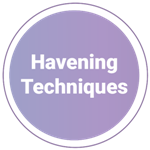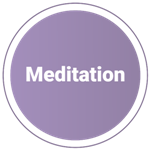Mindfulness
Mindfulness is the practice of deliberately focusing your thoughts on this moment, and admitting it without judgment. Mindfulness is now being examined accurately and maybe a key element in stress reduction and overall happiness.
What is mindfulness?
Mindfulness is the basic human ability to be fully present and aware of where we are and what we are doing and overwhelmed by what is going around us.
While mindfulness is something that we all naturally take for granted, it is readily available to us when we practice on a daily basis.
Whenever you are experiencing your thoughts and feelings through your senses or directly about your state of mind, you bring awareness. Given that research is growing one is actually remodeling the physical structure of your brain.
Practice Mindfulness
Mindfulness signifies maintaining a step-by-step awareness of our beliefs, judgments, physical sensations, and the surrounding environment.

Mindfulness also includes acceptance, meaning that we concentrate on our thoughts and feelings without judging them, without considering, as an example, that there is a 'right' or 'wrong' way to think, or a feeling during a given moment.
Once we practice mindfulness, our thoughts tune into what we’re sensing within the moment instead of rehashing the past or imagining the future.
Mindfulness psychology - Accepting our past
Each of us has a past that can be either pleasant or sad. All pleasant events are classified as sweet memories and reappear each time. Some say that repetition gives them strength and refreshes their present. While some great thinker’s say that this will not be right because it can spoil the present by comparing it with the past.
The really great truth is that "I can never make any improvement in my past and at the same time I cannot complete the present as it was in the past". So in other words the negative effect of the past is more than the positive effect on my present.
The really great truth is that "we can never make any improvement in our past as well as correct the present as it was in the past". So in other words the negative effect of the past is more than the positive effect on the present.
If we waste our present, then in reality we are also ruining our future. So if we are not prepared to handle the present properly, it will become an imperfect past, on which we will waste both our present and future. There is no need to worry about uncontrollable things to show that we have no control which is past.
But we have the present which is still under our control. If we focus on improving it instead of brooding on the past, we can control our future as well.
Not being anxious about the future - Mindfulness Benefits
There is no need to feel anxious or anxious or criticize yourself for trying to force thoughts out of your head. In short - avoid any conflict with ideas. Struggling with ideas is like struggling a little faster. It only immerses you deep.
Instead of struggling with thoughts, you can simply be unrestrained by your anxiety thoughts and see them purposefully and calmly. By labeling it "just an anxiety", you immediately step back from the thought, stop the conflict with what is happening, and recognize that thoughts of worry are just - just thoughts. Not reality. You are not stuck in your head at that moment of realization and can bring your attention back to the present moment.
You don't have to waste energy fighting anxiety and worry, but you don't even have to 'buy' it anymore. With this simple practice, you can recognize unethical thoughts, label them "just worrying", and take your day in a relaxed and calm state.
Clearly writing down our goals - Examples of Mindfulness
We know the importance of goal setting, but most of the times our goals are not measurable and clearly defined.
According to a study on goal setting, people who write their goals are no more than those who achieve it.
Most people do not bother to write their goals, instead they float in life wondering why their plans never work, and this is due to the fact that they do not understand the importance of written goals.
The secret to achieving your goals in life involves writing them in a well-defined and clear manner.
Making a schedule, and adhering to it (Personal and professional)- Helps being more organized
Whether you are living with no schedule or you usually try to make a schedule, but rarely stick to it, there are a few things to keep in mind to make sure you plan and meet your plans Will succeed in
First, like most things, the hardest part about sticking to a schedule is getting started and getting used to the feeling of commitment. Give yourself some inspiration to start this new method of being productive by choosing a few things that you will be excited about changing.
Often, people carry a day planne, have a huge monthly planning calendar on their wall, an online calendar, and a family calendar on a whiteboard in their kitchen. The problem with this is that you are increasing your chances of making a double booking mistake or not giving yourself enough time between activities.
To avoid completely forgetting about commitments, stay in one place to record all your plans and obligations. This will prevent you from moving back and forth from one calendar to another, increasing your chances of completing everything.
Because you can only be in one place at a time, it only makes sense to be able to see all your commitments in one place at a glance. Staying organized in this way will give you the ability to see if you can fit in with the extra tasks you have in your job and be able to anticipate any potential scheduling losses before you arrive.
Journaling- on your phone/ diary. Understanding what your thoughts are.
Three components of mindfulness: Attention, Intention, attitude.
Why is it that mindfulness practice, or training in meditation, intention and attitude, can bring about such profound and positive changes in our lives.
Mindfulness practice helps us to change mental habits, and it is often our mental habits that cause us so much trouble. It is important to know, even to know, that we are capable of changing mental habits, because we see ourselves as prisoners or victims (as well as our own physical sensations) of our thoughts and feelings.
We are trying to react or manage reality or fight reality rather than actually experiencing reality.
Mindfulness is about stopping everyone from battling things the way they are (best) and harmful (often). We aim to develop a compassionate attitude towards our actual experience (which is the baggage of our lives) and stop using habits to avoid, deny, manage and investigate real life.
Breathing/ Meditation- Can be done at office/ Home- even for five min
Be kind to yourself, and your thoughts
Take a deep breath - a phrase we are all familiar with as a last resort to relieve stress and frustration. But it really works.
Deep breathing is one of many processes of meditation. It is a practice that researchers say dates back to several thousand years. Research suggests that meditation can reduce anxiety, speed up memory, treat symptoms of depression, promote more restful sleep, and even improve heart health.
There are thousands of forms of meditation and with them comes various respiratory techniques.
The most basic way to breathe mindfully is to focus your attention on your breath. This can be done even while standing, but ideally, you will be sitting or lying in a comfortable position. Your eyes may open or close, but if you close your eyes you may find it easier to maintain your focus. It can help to set a specified time for this exercise, but can also help you practice it when you are feeling particularly stressed or anxious. Experts believe that a regular practice of mind breathing can make it easier to do in difficult situations.
Sometimes, especially when trying to calm yourself in a stressful moment, it can help to begin with exaggerated breathing: a deep breath through your nostril (3 seconds), your breath ( 2 seconds), and exhale with your mouth a long breath. (4 seconds). Otherwise, just inspect each breath without trying to adjust it; This can help focus on the rise and fall of your chest through your nostril.
As you do so, you may find that your mind wanders, distracted by thoughts or physical sensations. Okay. Just note that this is happening and slowly bring your attention back to your breath.



